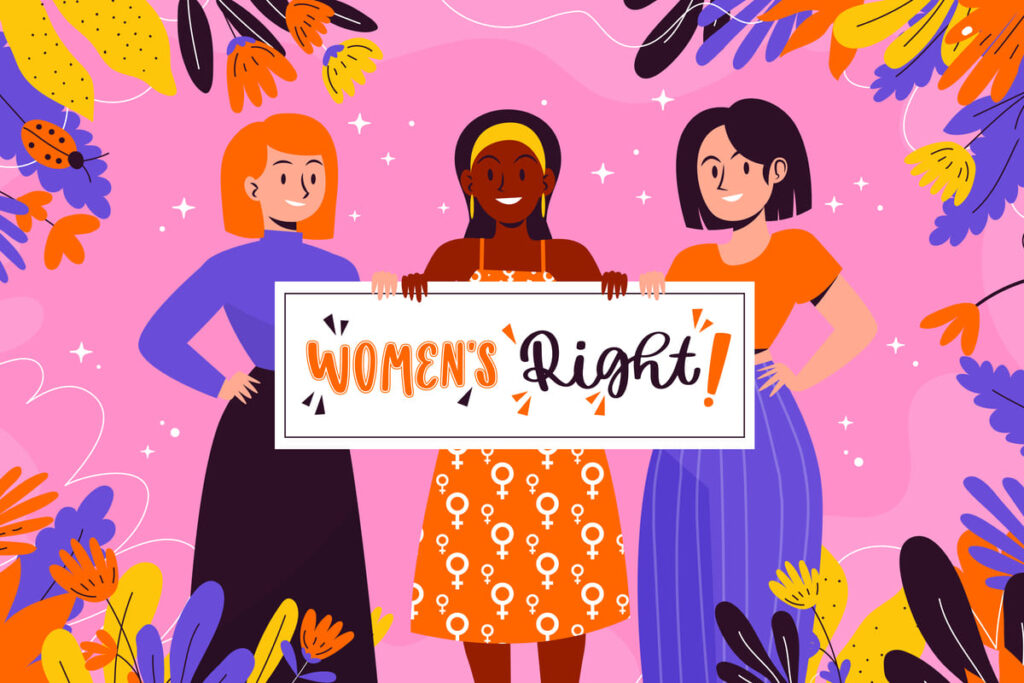Despite significant progress, challenges remain in fully protecting and advancing women’s rights in the Philippines. While the country has made strides in enacting laws to safeguard women from violence, discrimination, and inequality, many women still face barriers to accessing justice and protection. Addressing these issues is critical for creating a more equitable society. Legal protections for women’s rights in the Philippines, such as the Magna Carta of Women and the Anti-Violence Against Women and Children Act, are designed to provide essential support.
However, effective enforcement and broader societal acceptance are key to ensuring these protections have a lasting impact. By understanding and strengthening these laws, policymakers can offer more comprehensive solutions that empower women and promote gender equality across all sectors.
Historical Context of Women’s Rights in the Philippines
The journey of women’s rights in the Philippines has been shaped by decades of advocacy, social movements, and legal reforms. Historically, Filipino women have faced significant challenges, from societal restrictions to limited access to education and employment. However, the persistent efforts of women’s rights groups, along with support from key government institutions, have slowly reshaped the landscape.
In the 20th century, key events like the ratification of the 1973 Philippine Constitution marked an early victory, as it recognized the need for equality between men and women. The establishment of the Philippine Commission on Women (PCW) in 1975 and the ratification of the Convention on the Elimination of All Forms of Discrimination Against Women (CEDAW) in 1981 were milestones that paved the way for more legislative and policy changes aimed at protecting and advancing women’s rights. Over time, these efforts have brought women’s rights issues to the forefront of national discussions, leading to stronger protections.
Key Legal Protections for Women’s Rights in the Philippines
The Magna Carta of Women (Republic Act No. 9710)
The Magna Carta of Women, enacted in 2009, serves as the cornerstone of gender equality laws in the Philippines. This comprehensive law guarantees equal opportunities for women in all aspects of life, including education, employment, health, and political participation. It also mandates that government agencies implement policies to address gender-based violence and protect women in vulnerable sectors, such as migrant workers and Indigenous women.
The Magna Carta emphasizes the importance of women’s empowerment and envisions a society where women can fully enjoy their human rights without facing discrimination. The law mandates the government to establish gender-sensitive mechanisms to address challenges faced by women and ensure their participation in decision-making at all levels.
The Anti-Violence Against Women and Their Children Act (Republic Act No. 9262)
Passed in 2004, Republic Act No. 9262 seeks to protect women and children from all forms of violence, including physical, psychological, and economic abuse. This law acknowledges that violence against women and children can happen in various forms, often within intimate relationships, and provides legal mechanisms for victims to seek justice and protection.
The law allows women to secure protection orders, which include prohibiting abusers from contacting or approaching the victim. It also outlines penalties for perpetrators of violence, while offering support services such as counseling and shelter for survivors. The Anti-Violence Against Women and Their Children Act plays a crucial role in addressing domestic violence and empowering women to take action when facing abuse.
The Reproductive Health Law (Republic Act No. 10354)
The Reproductive Health Law, enacted in 2012, seeks to provide women with comprehensive and accessible reproductive health services. This law grants women the right to make informed choices regarding family planning, maternal health, and reproductive education. It also ensures that women, particularly those in marginalized communities, have access to contraceptives, prenatal care, and information about sexual and reproductive health.
By focusing on reducing maternal mortality rates and promoting responsible parenthood, the law empowers women to control their reproductive health and well-being. The Reproductive Health Law is an essential tool in ensuring women’s rights to health and bodily autonomy.
The Anti-Sexual Harassment Act (Republic Act No. 7877)
Sexual harassment remains a pervasive issue, particularly in workplaces and educational settings. Republic Act No. 7877, passed in 1995, addresses this by providing clear legal definitions and protections for individuals subjected to sexual harassment. This law covers harassment in both the workplace and educational institutions, ensuring that women have recourse if they experience unwanted sexual advances or coercion.
The Anti-Sexual Harassment Act establishes strict penalties for offenders and mandates that organizations and schools create policies to prevent and respond to harassment. This legislation plays an important role in creating safer environments for women to work, learn, and thrive without the threat of harassment.
The Safe Spaces Act (Republic Act No. 11313)
The Safe Spaces Act, also known as the “Bawal Bastos Law,” was enacted in 2019 to combat street harassment and other forms of harassment in public spaces. It provides legal protections against harassment in public areas, including public transportation, streets, schools, and even in online spaces.
This law targets unwanted behaviors such as catcalling, stalking, and other verbal or physical harassment, ensuring that women can move freely in public without fear of being subjected to harassment. The Safe Spaces Act not only gives women the legal right to file complaints but also creates a more supportive environment for those who experience harassment.
The Role of Government Agencies and Institutions
Various government agencies play crucial roles in promoting and protecting women’s rights in the Philippines. The Philippine Commission on Women (PCW), for example, is at the forefront of advocating for gender equality and coordinating programs to address the unique challenges faced by women. The PCW works alongside other government bodies to ensure that women’s rights are integrated into national policies, from health and education to labor and justice.
The Commission on Human Rights (CHR) is another vital institution in safeguarding women’s rights, offering legal support and representing women in cases where their rights have been violated. Local government units (LGUs) also contribute to enforcing laws related to women’s rights, establishing local councils that address domestic violence, women’s welfare, and gender-based violence.
Challenges in Implementing and Enforcing Women’s Rights Laws
While legal protections exist, there are still several barriers to ensuring that these laws are fully implemented and enforced. One major challenge is the lack of adequate resources and training for law enforcement officials and local government units. Women often face difficulties in navigating legal systems, and societal stigma surrounding certain issues, such as domestic violence and sexual harassment, can discourage victims from coming forward.
Cultural norms also pose challenges to the effective enforcement of women’s rights laws. Deep-seated gender stereotypes and traditional views on women’s roles in society can make it difficult for women to assert their rights, especially in rural areas or conservative communities. Continuous education, advocacy, and the strengthening of support systems are crucial to addressing these challenges.
Women’s Rights in the Context of Work and Economic Empowerment
Women’s economic empowerment is a central aspect of gender equality, but Filipino women still face challenges in achieving equal pay and opportunities in the workforce. Women are often underrepresented in leadership positions and traditionally gendered sectors, such as caregiving and domestic work. The Labor Code of the Philippines and other labor laws aim to eliminate gender discrimination in employment, ensuring that women are entitled to equal pay for equal work and protection from unfair practices.
Efforts to improve the working conditions of women in vulnerable sectors, such as migrant workers and domestic helpers, have gained attention in recent years. These legal protections are vital to addressing economic inequality and ensuring women’s independence and financial security.
The Future of Women’s Rights in the Philippines
As the Philippines continues to progress, there are still areas in which the legal protections for women can be improved. Expanding access to affordable legal aid, strengthening enforcement mechanisms, and increasing awareness of women’s rights are critical for closing the gap between laws and their real-world impact.
Key areas of focus include ensuring greater protection for women in rural and marginalized communities, improving access to reproductive health services, and addressing gender-based violence more effectively. Continued advocacy and collaboration between government, civil society, and the private sector will be essential in advancing women’s rights in the Philippines.
Key Takeaway
In conclusion, while significant strides have been made in advancing women’s rights in the Philippines through legislative measures, there is still much work to be done in ensuring these protections are fully realized. Laws such as the Magna Carta of Women, the Anti-Violence Against Women and Their Children Act, and the Reproductive Health Law have laid the groundwork for a more equitable society, but effective enforcement, societal support, and ongoing advocacy are crucial to overcoming existing barriers.
As the Philippines continues to evolve, fostering a culture of gender equality and empowering women to fully exercise their rights will require continued collaboration across all levels of government and society. By strengthening the implementation of these laws and addressing the root causes of gender inequality, the country can create a more just and inclusive future for women.
- An Overview of Legal Protections for Women’s Rights in the Philippines
- Despite significant progress, challenges remain in fully protecting and advancing women's rights in the Philippines.
- women's rights in the Philippines










